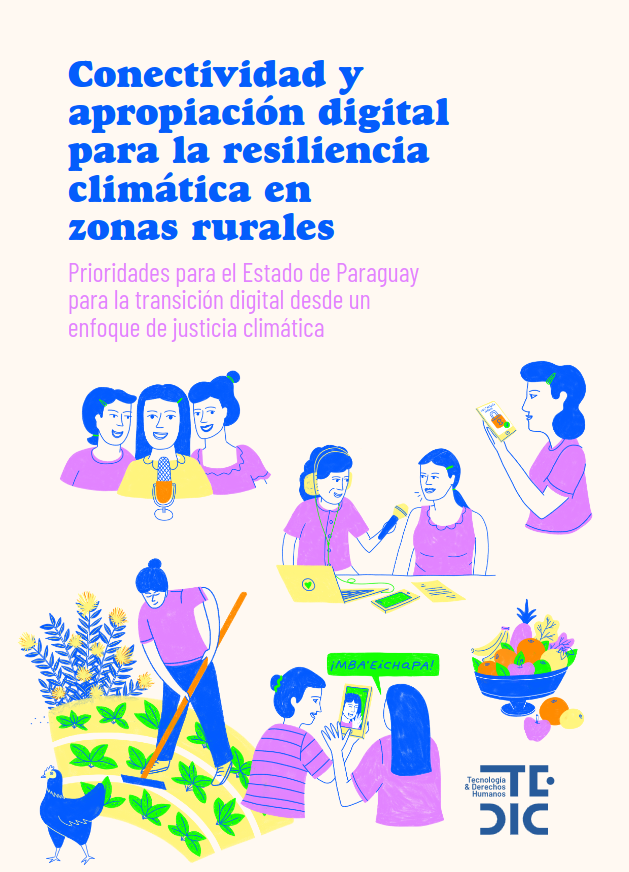A climate justice approach from the Global South to the twin transitions.
[En castellano] Thinking digital technology for the climate and ecological crisis from the Southern Cone. How do we terraform the rural areas of countries like Paraguay suffering acutely from the climate and ecological crisis? What role do digital technologies play in this terraforming? In 2023, we partnered with TEDIC and the Kuña Aty Women's Committee of Táva Guaraní (both Paraguayan organizations) on a project to link digital and energy transitions from concepts such as climate justice.

As the figures show, when it comes to the climate crisis, neither the responsibilities nor the consequences are shared equally. The most impoverished people and countries suffer the most from this crisis, even though they bear the least responsibility. This crisis has been caused by the industrial development of developed countries in the first place and displaced peripheral countries by disrupting production chains. Thus, in high-income countries, where only one-sixth of the world's population lives, it is estimated that they emit 44 times more CO2 than those with lower incomes.
In this context, climate justice is fundamentally about paying attention to how climate change impacts people differently, unequally, and disproportionately and remedying these injustices fairly and equitably. Its objectives are to reduce marginalization, exploitation, and oppression and to strengthen equity and justice. In other words, climate justice denounces reductionist ways of viewing the problem of global warming as a scientific or merely economic issue and, in this critical approach, relocates the problem to moral and justice concerns. In this, intersectional feminism plays a key role, as it draws attention to the power relations that converge to affect the climate and ecological crisis, with gender, race, class, and other social hierarchies crucial to the analysis of climate justice.
Although these injustices are part of the public policy discussion around the climate and ecological crisis, climate justice is often conceived of as an afterthought to a policy rather than its central objective, resulting in people being forgotten in favor of purely economic transition objectives. This is the case of an increasingly popular concept that directly concerns digital policies: twin transitions. With this latter approach, industrial economies seek to link the urgent transition to green energy that the world needs with the digitalization of the economy, on the understanding that both transitions (green and digital) are equally dependent on each other and will be the key to climate mitigation.
This paper aims to understand how the digital transition, in a context of twin transitions, must be thought through from the perspective of climate justice because otherwise, those left furthest behind by digitalization, who are also those who suffer the most from the climate and ecological crisis, will once again be forgotten. To do so, it critically reviews the concept of twin transitions and focuses on the connectivity needs of the rural women's community of Táva Guaraní in the department of San Pedro, Paraguay.
In a discussion on twin transitions that are being driven from the Global North, we consider it essential that public policy that seeks to bridge the transition to green energy with the digitalization of the economy not only listens to the communities most affected by the climate crisis and the lack of meaningful digital connectivity but is an essential inspiration for putting justice at the heart of twin transitions. For this reason, this paper also focuses on providing some public policy recommendations for stakeholders, including advocating for an international solidarity fund for infrastructure and connectivity for climate mitigation, following the logic and experience of the loss and damage compensation funds that drive the UN climate mechanisms (special funds from rich countries that seek to compensate for the negative consequences of climate change in the most affected countries that did not contribute to the crisis).
An unofficial English translation of the original report can be accessed here.